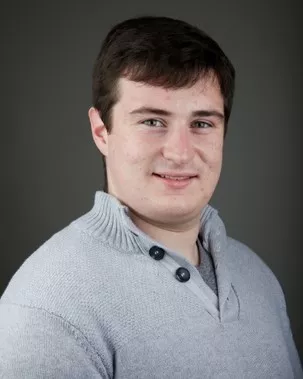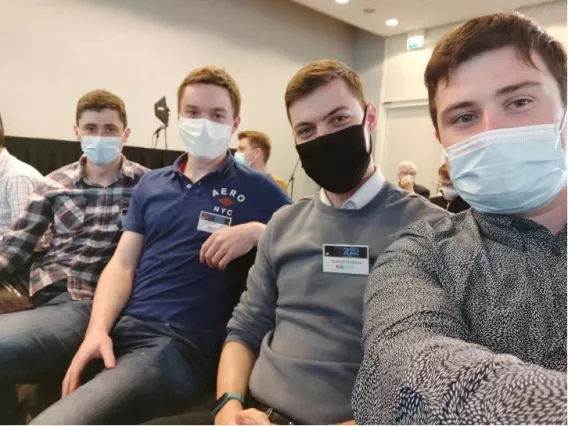
As a PhD student, people ask me why I am doing physics research when many job opportunities are already available with a bachelors or masters. I have found that this is a complicated question that cannot be answered quickly, and often depends on the person. For me, it was to develop skills, work at the cutting edge of research, and try to answer complex questions.
Each day as a PhD student brings unique challenges and questions. As part of my research, I run computer simulations of how electrons pass through extremely thin samples in a Transmission Electron Microscope (TEM). This research project, like many others, is multidisciplinary and revolves around knowledge in physics, mathematics and computer science. Like all PhD students, I am constantly reading, learning, and discovering more about these subjects in the service of addressing my research question.
As part of my PhD responsibilities, it is necessary to assist with tutoring undergraduate students and correcting module assignments (most of which I previously undertook while I was an undergraduate student). Teaching has brought its own exceptional tests and hardships, but this has helped me hone transferrable skills – such as public speaking and communication – which are essential to learn over the course of a PhD.
Now that COVID-19 is over, we can all travel to conferences, something I have been looking forward to. Conferences can be exciting, highly beneficial events for any researcher. These can take place in Ireland, or abroad, and travelling during your PhD is something I highly recommend. It is an excellent opportunity to network with like-minded people in your field, to learn more about current research, and generate new ideas for possible future projects.

From left to right: David Landers (UL Physics), Eoin Walsh (UL Physics), Patrick McBean (Trinity College Dublin) and myself at the The Seventh Conference on Frontiers of Aberration Corrected Electron Microscopy (PICO 2022), which took place in The Netherlands.
In summary, doing a PhD has its ups and downs. It is an excellent opportunity to work on the research frontier with brilliant people, but it is not without its challenges. Spending days stuck on a single problem is common in physics, and can be incredibly frustrating, but overcoming this kind of obstacle is extremely rewarding. Completing a PhD can allow for more advancement in both academia and industry, and is something I recommend.
Stephen Mullins, a 3rd year physics PhD student is co-supervised by Dr Ning Liu (UL) and Dr Andy Stewart (UCL).
